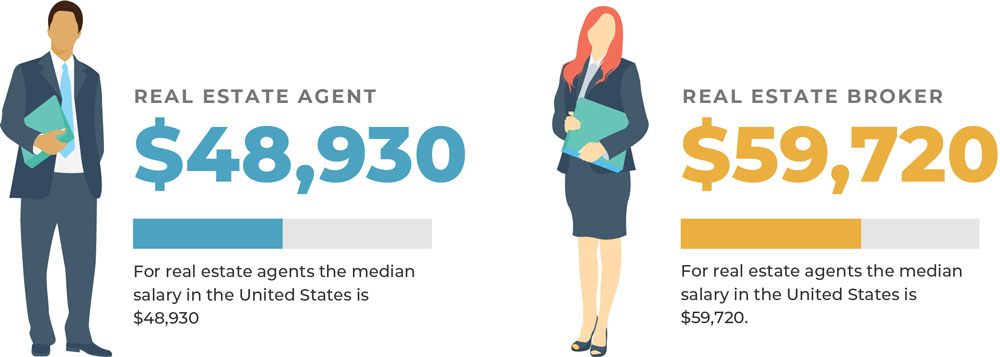
Podcasts are a great way to learn whether you're new to the industry or an experienced professional. There are many types of podcasts, each with a different focus and style. They vary in their approach and often feature interviews with investors, entrepreneurs, and experts in the real estate industry.
Bill Allen's 7 Figure flipping podcast is a fantastic resource for people interested in learning more information about real-estate investing. The podcast features deep dive interviews of top investors and entrepreneurs. They also discuss a wide range of topics, such as house flipping, wholesaling, or other financial skills. Podcast hosts also provide information on current markets for investment properties.
BiggerPockets Real Estate Podcast ranks high in search of interviews with real estate entrepreneurs and investors. You can find it on Stitcher and Apple Podcasts as well as Google Podcasts. You can find out more about the podcast on the BiggerPockets website.

The #1 Leading Ladies podcast inspires women to be independent by focusing on their goals. Interviews with successful women, as well as authors who are bestselling, make up the majority of the program. The show encourages women not to be in toxic relationships and encourages them to envision financial independence. Jeff Johnson hosts the event, and has helped thousands of people achieve their financial goals.
Real estate professionals will find the CarrotCast podcast a valuable tool, because it includes relevant online marketing strategies. The podcast has more than 1,000,000 downloads and is hosted in part by two real-estate industry professionals. They share their passions for technology and business growth. It's a great way learn about the best strategies to help you in your career.
The Pillars of Wealth podcast is an educational program with content for all types of listeners. Interviews with successful entrepreneurs provide advice on how to achieve financial freedom and business success. It is a great resource for everyone.
The Cash Flow Guys podcast provides great financial education. It covers the basics of real-estate investing as well as practical advice to help you get what you want. Each week, the podcast features an episode with a real investor. It is available on iTunes, Apple Podcasts, and Stitcher. Kevin Bupp, a commercial realtor who has handled more than 100,000,000 transactions, hosts it. He is a former construction manager. This podcast focuses on advanced and intermediate real estate investors.

The Real Estate Sales podcast will provide listeners with actionable strategies and tips for growing their real estate business. This podcast is perfect for investors, sellers, and buyers. They will interview industry leaders and share quick tips for growing your business. They will also discuss the latest trends in this industry. They will share important information about real-estate, mortgages, as well as other related topics.
The Silver Dollar, an entrepreneur and commercial real estate agent, shares his chemistry as well as quick-hitting advice with guests. He holds a Master of Science in Civil Engineering. His focus is on multi-family properties. He usually has a 20-minute episode and a question and answers session with Arielle.
FAQ
How long does it take for my house to be sold?
It depends on many factors including the condition and number of homes similar to yours that are currently for sale, the overall demand in your local area for homes, the housing market conditions, the local housing market, and others. It may take 7 days to 90 or more depending on these factors.
How do I repair my roof
Roofs may leak from improper maintenance, age, and weather. Roofers can assist with minor repairs or replacements. Contact us for more information.
What are the downsides to a fixed-rate loan?
Fixed-rate loans tend to carry higher initial costs than adjustable-rate mortgages. Additionally, if you decide not to sell your home by the end of the term you could lose a substantial amount due to the difference between your sale price and the outstanding balance.
Is it possible sell a house quickly?
You may be able to sell your house quickly if you intend to move out of the current residence in the next few weeks. However, there are some things you need to keep in mind before doing so. First, you need to find a buyer and negotiate a contract. The second step is to prepare your house for selling. Third, you must advertise your property. Finally, you should accept any offers made to your property.
How do you calculate your interest rate?
Market conditions can affect how interest rates change each day. The average interest rate over the past week was 4.39%. The interest rate is calculated by multiplying the amount of time you are financing with the interest rate. For example: If you finance $200,000 over 20 year at 5% per annum, your interest rates are 0.05 x 20% 1% which equals ten base points.
Can I afford a downpayment to buy a house?
Yes! There are many programs that can help people who don’t have a lot of money to purchase a property. These programs include FHA, VA loans or USDA loans as well conventional mortgages. Visit our website for more information.
How much does it cost to replace windows?
Windows replacement can be as expensive as $1,500-$3,000 each. The exact size, style, brand, and cost of all windows replacement will vary depending on what you choose.
Statistics
- Private mortgage insurance may be required for conventional loans when the borrower puts less than 20% down.4 FHA loans are mortgage loans issued by private lenders and backed by the federal government. (investopedia.com)
- It's possible to get approved for an FHA loan with a credit score as low as 580 and a down payment of 3.5% or a credit score as low as 500 and a 10% down payment.5 Specialty mortgage loans are loans that don't fit into the conventional or FHA loan categories. (investopedia.com)
- When it came to buying a home in 2015, experts predicted that mortgage rates would surpass five percent, yet interest rates remained below four percent. (fortunebuilders.com)
- Based on your credit scores and other financial details, your lender offers you a 3.5% interest rate on loan. (investopedia.com)
- This seems to be a more popular trend as the U.S. Census Bureau reports the homeownership rate was around 65% last year. (fortunebuilders.com)
External Links
How To
How to Manage A Rental Property
You can rent out your home to make extra cash, but you need to be careful. This article will help you decide whether you want to rent your house and provide tips for managing a rental property.
This is the place to start if you are thinking about renting out your home.
-
What factors should I first consider? Take a look at your financial situation before you decide whether you want to rent your house. You may not be financially able to rent out your house to someone else if you have credit card debts or mortgage payments. Also, you should review your budget to see if there is enough money to pay your monthly expenses (rent and utilities, insurance, etc. This might be a waste of money.
-
How much will it cost to rent my house? Many factors go into calculating the amount you could charge for letting your home. These factors include the location, size and condition of your home, as well as season. Keep in mind that prices will vary depending upon where you live. So don't expect to find the same price everywhere. Rightmove shows that the median market price for renting one-bedroom flats in London is approximately PS1,400 per months. This would translate into a total of PS2,800 per calendar year if you rented your entire home. That's not bad, but if you only wanted to let part of your home, you could probably earn significantly less.
-
Is it worth the risk? You should always take risks when doing something new. But, if it increases your income, why not try it? Before you sign anything, though, make sure you understand exactly what you're getting yourself into. It's not enough to be able to spend more time with your loved ones. You'll need to manage maintenance costs, repair and clean up the house. Make sure you've thought through these issues carefully before signing up!
-
Are there any benefits? There are benefits to renting your home. There are many reasons to rent your home. You can use it to pay off debt, buy a holiday, save for a rainy-day, or simply to have a break. It is more relaxing than working every hour of the day. Renting could be a full-time career if you plan properly.
-
How do I find tenants After you have decided to rent your property, you will need to properly advertise it. You can start by listing your property online on websites such as Rightmove and Zoopla. After potential tenants have contacted you, arrange an interview. This will help to assess their suitability for your home and confirm that they are financially stable.
-
How do I ensure I am covered? If you fear that your home will be left empty, you need to ensure your home is protected against theft, damage, or fire. In order to protect your home, you will need to either insure it through your landlord or directly with an insured. Your landlord will often require you to add them to your policy as an additional insured. This means that they'll pay for damages to your property while you're not there. However, this doesn't apply if you're living abroad or if your landlord isn't registered with UK insurers. In such cases you will need a registration with an international insurance.
-
It's easy to feel that you don't have the time or money to look for tenants. This is especially true if you work from home. However, it is important that you advertise your property in the best way possible. It is important to create a professional website and place ads online. Also, you will need to complete an application form and provide references. While some people prefer to handle everything themselves, others hire agents who can take care of most of the legwork. Interviews will require you to be prepared for any questions.
-
What should I do after I have found my tenant? If you have a contract in place, you must inform your tenant of any changes. You can negotiate details such as the deposit and length of stay. Remember that even though you will be paid at the end of your tenancy, you still have to pay utilities.
-
How do you collect rent? When it comes time for you to collect your rent, check to see if the tenant has paid. If they haven't, remind them. Before you send them a final invoice, you can deduct any outstanding rent payments. If you're struggling to get hold of your tenant, you can always call the police. They won't normally evict someone unless there's been a breach of contract, but they can issue a warrant if necessary.
-
What are the best ways to avoid problems? Although renting your home is a lucrative venture, it is also important to be safe. You should install smoke alarms and carbon Monoxide detectors. Security cameras are also a good idea. Check with your neighbors to make sure that you are allowed to leave your property open at night. Also ensure that you have sufficient insurance. Do not let strangers in your home, even though they may be moving in next to you.